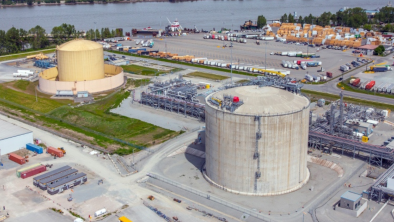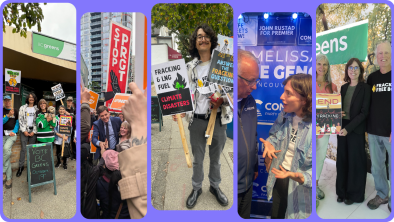B.C.’s Supreme Court dismisses Water Act challenge to fracking operations
The Globe and Mail

A judge will not stop the flow of fresh water from British Columbia’s lakes and rivers to hydraulic fracking operations, but did recognize the issue as a growing public concern.
The Western Canada Wilderness Committee and the Sierra Club filed a petition against the B.C. Oil and Gas Commission and energy company EnCana Corp. over the commission’s decision to grant repeat short-term water approvals to the company.
The environmental groups wanted the court to declare the approvals a violation of the provincial Water Act. They also asked a judge to quash several such permits issued to Encana.
But in a decision posted this week on the court website, B.C. Supreme Court Justice Shelley Fitzpatrick dismissed the application.
“Over the last few decades, the world has become increasingly aware that water is a precious resource,” she wrote. “This heightened awareness has caused many persons, including public interest groups such as the petitioners, to question the management of our water resources, particularly as it relates to the use of publicly owned water by industry.”
Concerns include increasing pressure on water resources and the effect of chemicals used in the fracking process, as well as the effect of fracking on underground water resources, Fitzpatrick noted.
Days before the court hearing began, the provincial government introduced its updated Water Sustainability Act, which expressly allows recurrent short-term approvals.
But the previous legislation did not prohibit such approvals, Fitzpatrick found.
Court heard that in 2012, the oil and gas commission granted the industry access to 20.4 million cubic metres of surface water. About seven million were for fracking — 54 per cent of that from short-term approvals.
But only a small fraction of the fresh water used in the province is for oil and gas, the judge said.
In 2009, the industry received less than 0.006 per cent, compared to the hydro power industry allocation of 98 per cent. And only a small portion of that is actually withdrawn for use, Fitzpatrick found.
The commission did not respond to a request for comment.
Doug McIntyre, of Encana, said Thursday the decision validates the company’s position.
“Encana responsibly uses water in a number of ways to produce natural gas and oil on which all British Columbians rely,” McIntyre said in a statement emailed in response to a request for an interview.
The company continuously consults First Nations, local communities, landowners and others on water use and is open to further discussions, he said.
“We always seek wherever possible to reduce our reliance on surface water sources and have successfully used otherwise unusable saline water in a number of our operating areas as an alternate source.”
Caitlyn Vernon of the Sierra Club said the decision was disappointing, and likewise the new provincial water regulation.
“It’s a clear example of the law being changed to suit industry’s needs,” she said.
Though she dismissed the petition, the judge granted the environmental groups public interest standing to bring the case to court and did not order them to pay the defendants’ costs, as is often the case.
“This proceeding has raised an important issue concerning the use of a valuable public resource...,” Fitzpatrick wrote.
“This issue has not previously been determined, and substantially arises from the increasing activities of the oil and gas sector in the province and the industry’s ongoing and increasing water needs in its operations.”
This article by the Canadian Press was also published by The Province, Global News BC, MySask, Leaderpost, Beacon News, and CBC News BC.
Photo: Jeremy Williams.


